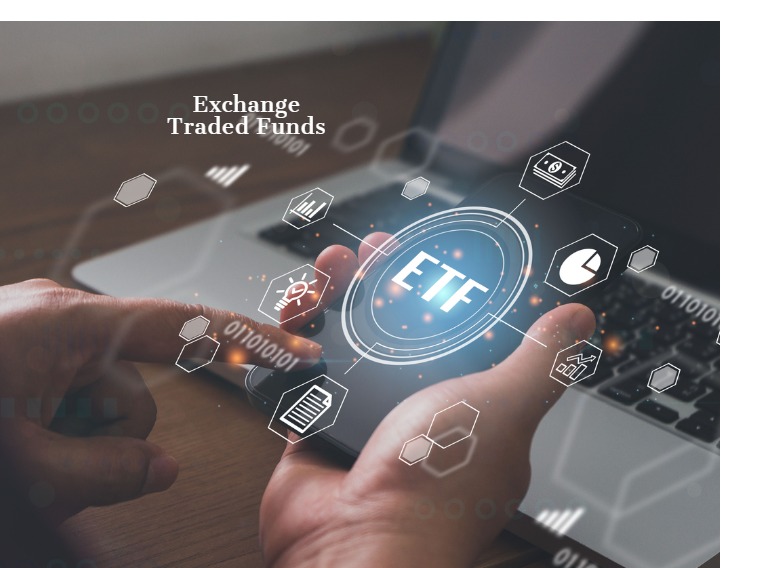We've captured the standout insights from the event series in an investor-ready eBook.


Report
Exchange Traded Funds provide easy access to investment themes across the world without the need to pick individual stocks

Ever considered investing in some of the world’s top cyber security, defence, or robotics and artificial intelligence companies?
Dealing with a foreign stock exchange, gaining access to company research, navigating currency conversions, and pondering tax implications can be daunting if investing directly into companies listed offshore.
Yet it is possible to gain exposure to these and other industries through an ASX listed exchange traded fund (ETF). For instance, the Betashare Robotics and Artificial Intelligence (AI) ETF aims to track the performance (before fees and expenses) of leading companies expected to benefit from the adoption and exposure to robotics and AI by buying shares in a range of companies from several different countries and sectors.
That’s just one example, and the options available have grown rapidly over the past decade. In fact, there is an ever-growing array of ETFs offering exposure to all manner of asset classes, including Australian and international shares, bonds, property securities and commodities. There are also ETFs which provide specific exposure to currencies and high-dividend shares.
But what are ETFs and are there other alternatives?
Exchange Traded Funds have much in common with traditional managed funds. Both are open-ended investments that have traditionally invested in a variety of shares or assets in a particular asset class to replicate the performance of a sector or an index.
Where they differ is that ETFs are listed on a stock exchange, making the price discovery process simpler with a live price available throughout the trading day – In contrast, managed funds typically reset their price once a day, some even less frequently.
There are other advantages to ETFs that make them an attractive investment option:
Like managed funds, Exchange Traded Funds offer a convenient way of gaining exposure to a particular sector or geographic region. Investors without the time to research or who don’t want the concentrated exposure of selecting a more limited range of stock may find it easier to establish a diversified portfolio using ETFs of their choice.
Investors can further diversify by using a combination of ETFs and individual stock selection. An investor may choose an ETF that gives them exposure to a broad spectrum of the market and then, supplement their portfolio with particular shares they have identified as potential outperformers.
ETFs first came to the Australian market around 20 years ago. Their popularity, however, has increased significantly over the past 10 years.
The main reason ETFs are coming to greater prominence is twofold:
ETFs are not just for inexperienced investors, and they are being taken up by professional and institutional investors as the variety on offer provides many with the right strategic asset allocation, or the right tactical asset allocation, to justify an exposure.
There are a range of things to consider before investing in an ETF. After all, it is a financial instrument and that means you still need to do your homework first.
For instance, you will need to assess the relative liquidity of the ETF and that includes its underlying assets. If those assets are by their nature harder to sell, the ETF may be inherently riskier.
You should also consider the potential risks of buying a product on an overseas market. This includes understanding how your investment will be taxed if the ETF is in another country. If the fund tracks overseas assets, you need to think about any currency risk as well, (although some funds may reduce this risk through a hedge).
Of course, it’s also worth remembering that there are fees associated with an ETF. While you may receive a distribution – the interest or dividends from the underlying bonds or shares for example – you will also have to pay fees associated with the management of the fund, which will impact your return.
To discover more call 1300 683 106 or email us on investordesk@nab.com.au
Important Information
The information contained in this article is gathered from multiple sources believed to be reliable as of the end of October 2023 and is intended to be of a general nature only. It has been prepared without taking into account any person’s objectives, financial situation or needs. Before acting on this information, we recommend that you consider whether it is appropriate for your circumstances and that you seek independent legal, financial and taxation advice before acting on any of this information. ©2023 NAB Private Wealth is a division of National Australia Bank Limited ABN 12 004 044 937 AFSL and Australian Credit Licence 230686.
All information in this article is intended to be accessed by the following persons ‘Wholesale Clients’ as defined by the Corporations Act. This article should not be construed as a recommendation to acquire or dispose of any investments.
The information contained in this article is intended to be of a general nature only. It has been prepared without taking into account any person’s objectives, financial situation or needs. NAB does not guarantee the accuracy or reliability of any information in this article which is stated or provided by a third party. Before acting on this information, NAB recommends that you consider whether it is appropriate for your circumstances. NAB recommends that you seek independent legal, property, financial and taxation advice before acting on any information in this article. You may be exposed to investment risk, including loss of income and principal invested.
You should consider the relevant Product Disclosure Statement (PDS), Information Memorandum (IM) or other disclosure document and Financial Services Guide (available on request) before deciding whether to acquire, or to continue to hold, any of our products.
All information in this article is intended to be accessed by the following persons ‘Wholesale Clients’ as defined by the Corporations Act. This article should not be construed as a recommendation to acquire or dispose of any investments.
© National Australia Bank Limited. ABN 12 004 044 937 AFSL and Australian Credit Licence 230686.